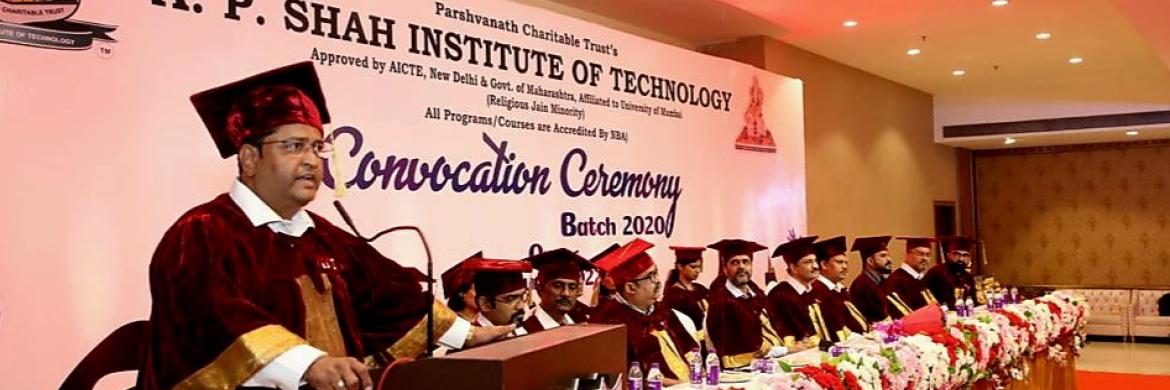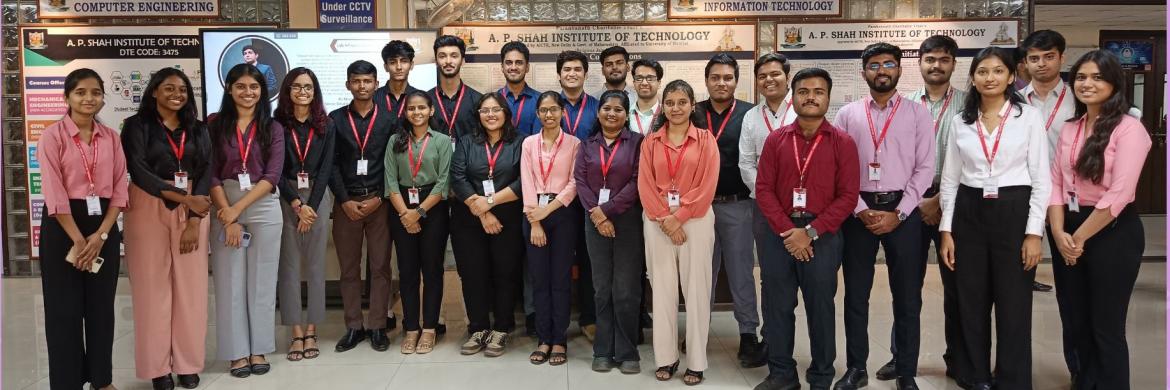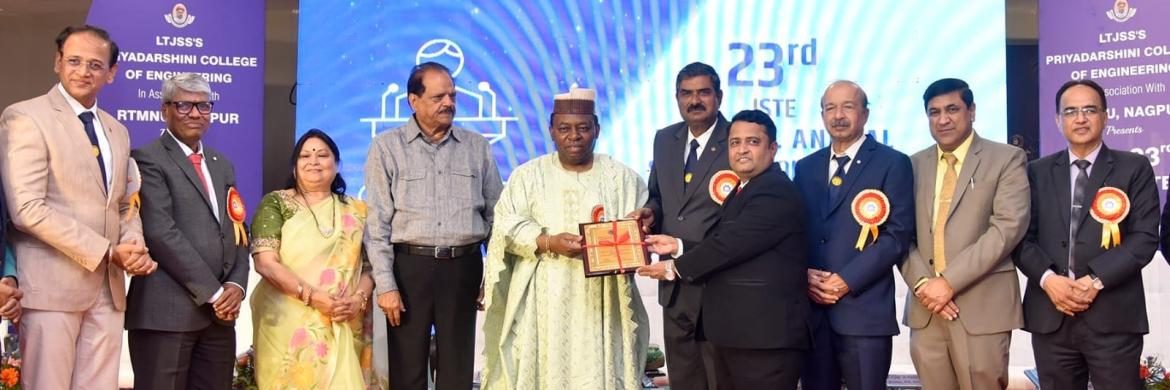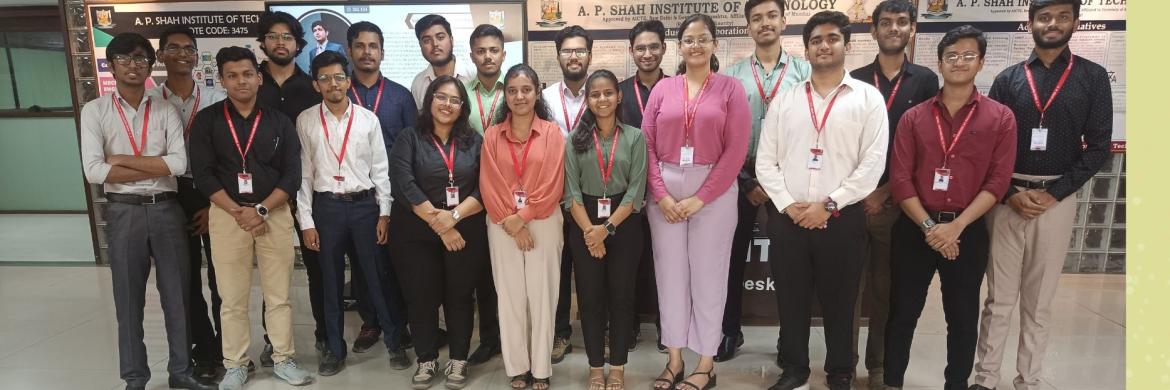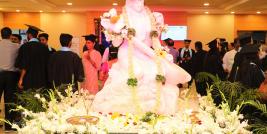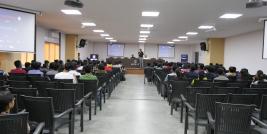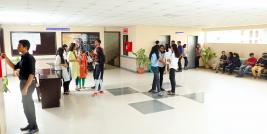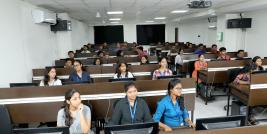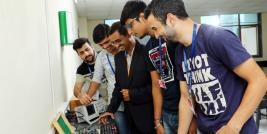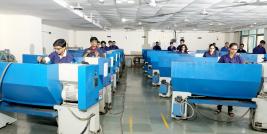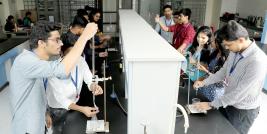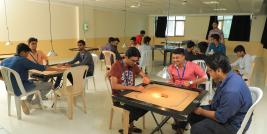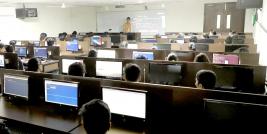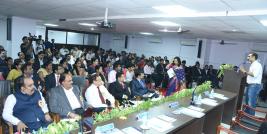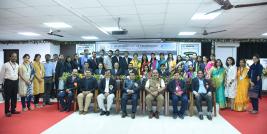Department of Electronics & Telecommunication Engineering:
Program Educational Objectives (PEO)
- PEO 1 PREPARATION: To make students competent for higher studies and employable, to meet industrial requirements.
- PEO 2 CORE COMPETENCE: To develop students having core competence in science, mathematics and fundamentals of Electronics & Telecommunication Engineering to address everchanging industrial requirements globally.
- PEO 3 BREADTH: To create academically conducive environment to learn engineering skills in the domains such as Core electronics, Communication, Digital systems, Signal Processing and Allied Technologies.
- PEO 4 PROFESSIONALISM: To enrich students with professional ethics, leadership qualities, and entrepreneurial skills.
- PEO 5 LIFE LONG LEARNING: An ability to engage in lifelong learning for effective adaptation to technological developments.
Program Specific Outcome (PSO)
- The graduates will exhibit the ability to understand the concepts of core electronics and Communication subjects for the analysis and development of electronic systems.
- The graduates will have hands on experience of software simulation and design tools for implementation of complex problems in the field of Electronics and Telecommunication Engineering.
- The potential of employability of the graduates will be improved by imparting interpersonal skills and introductory knowledge of next generation technologies.
Program Outcome (PO)
- Engineering Knowledge: Apply the knowledge of mathematics, science, engineering fundamentals, and an engineering specialisation for the solution of complex engineering problems.
- Problem Analysis: Identify, formulate, research literature, and analyse complex engineering problems reaching substantiated conclusions using first principles of mathematics, natural sciences, and engineering sciences.
- Design/development of solutions: Design solutions for complex engineering problems and design system components or processes that meet t h e specified needs with appropriate consideration for public health and safety, and cultural, societal, and environmental considerations.
- Conduct investigations of complex Problems: Use research-based knowledge and research methods including design of experiments, analysis and interpretation of data, and synthesis of the information to provide valid conclusions.
- Modern tool usage: Create, select, and apply appropriate techniques, resources, and modern engineering and IT tools, including prediction and modelling to complex engineering activities, with an understanding of the limitations.
- The engineer and society: Apply reasoning informed by the contextual knowledge to assess societal, health, safety, legal, and cultural issues and the consequent responsibilities relevant to the professional engineering practice.
- Environment and sustainability: Understand the impact of the professional engineering solutions in societal and environmental contexts, and demonstrate the knowledge of, and need for sustainable development.
- Ethics: Apply ethical principles and commit to professional ethics and responsibilities and norms of the engineering practice.
- Individual and team work: Function effectively as an individual, and as a member or leader in diverse teams, and in multidisciplinary settings.
- Communication: Communicate effectively on complex engineering activities with the engineering community and with t h e society at large, such as, being able to comprehend and write effective reports and design documentation, make effective presentations, and give and receive clear instructions.
- Project management and finance: Demonstrate knowledge and understanding of t h e engineering and management principles and apply these to one’s own work, as a member and leader in a team, to manage projects and in multidisciplinary environments.
- Life-long learning: Recognise the need for, and have the preparation and ability to engage in independent and life-long learning in the broadest context of technological change.
